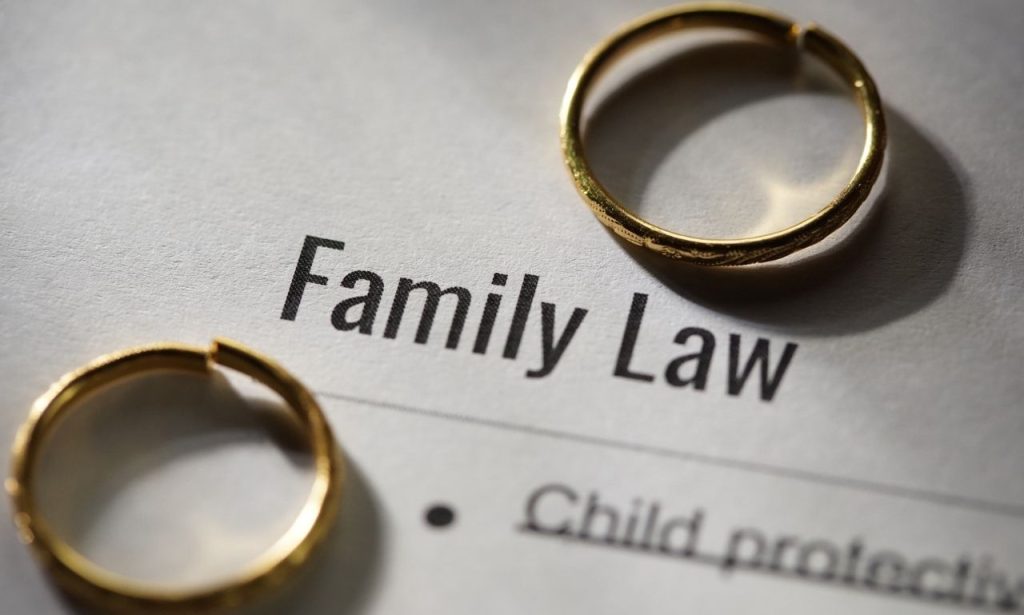The shock of discovering your spouse cleared out your joint bank account hits like a ton of bricks. I’ve watched clients struggle through this situation more times than I can count. First comes disbelief, then panic, then rage. These accounts hold your shared future – emergency funds, household money, and vacation savings. When that balance suddenly reads zero, your financial security vanishes overnight. You need to understand your rights immediately. Acting quickly can protect what’s rightfully yours during this nightmare scenario.
Each Party’s Right to Money in Joint Bank Accounts

Joint accounts legally belong to both spouses equally, no questions asked. Banks don’t play referee or require permission slips for withdrawals. Your spouse can walk in and take every penny without calling you first. The bank teller won’t bat an eye or make a courtesy call. This setup works beautifully in healthy marriages but creates serious problems during breakups. Most couples never consider this dangerous loophole until it’s too late.
Last year, my client Sarah couldn’t buy groceries after her husband drained their checking account overnight. She had no idea he could legally take everything. Your state’s property laws determine how courts view these situations. Community property states consider all marital assets equally owned from day one. Equitable distribution states focus on fair division based on specific circumstances. Courts expect spouses to handle joint money responsibly during separation. Taking everything typically violates this basic principle of fairness.
Can You Close or Withdraw Money from a Joint Account Before Divorce?
Legal Right to Access
Both parties can legally access joint accounts until the divorce is finalized – that’s how it works. Banks recognize both names equally and won’t restrict either person’s withdrawals. They won’t question large transfers or suspicious activity between owners. This creates a serious vulnerability when trust breaks down. Taking reasonable amounts for bills and necessities rarely causes problems. Judges understand you still need to pay rent and buy food.
Potential Consequences
Emptying joint accounts often backfires spectacularly in divorce court. Judges track financial moves made before divorce papers even hit their desks. Courts frequently view account draining as financial misconduct or bad faith behavior. This can result in painful penalties when dividing remaining assets. The judge might order immediate repayment of everything taken. Some courts award additional property to the wronged spouse as punishment. The financial power play could even affect custody decisions in extreme cases. Judges consider financial responsibility when evaluating parenting capabilities.
Reasonable Withdrawals
The court tends to approve withdrawals that cover ongoing expenses. The court considers mortgage payments, utility bills, and groceries acceptable expenses. Medical expenses and costs for children’s needs represent acceptable withdrawal purposes. Your marriage dissolution does not stop the flow of life activities. People still need access to money for basic survival. The key? Stand by typical expenses, which easily demonstrate your financial needs. Maintain detailed documentation which details all monetary distributions. You must save all receipts, including every single purchase. Later, your financial openness will prove essential.
Can You Stop Sending Direct Deposit Payments to a Joint Account?
Your paycheck redirection process requires no spouse’s consent. The majority of HR departments execute this change through basic documentation processes. Your paycheck redirection through the switch should become active between one and two pay periods. The law permits you to move your income through a private bank account while separated from your spouse. Most divorce attorneys suggest implementing this protective measure at the beginning of the separation process. The establishment of financial boundaries serves to protect against disagreements over new money. Your peace of mind will improve because your upcoming paycheck remains secure.
Opening your new account at a separate bank provides maximum protection from bank interference. Select a bank that operates separately from your joint financial accounts. Make the transition without creating a scene through accusations. Inform your spouse about the new account after it is designed to prevent allegations of asset hiding. You want to convey that you need to set necessary financial boundaries. Remember that income earned during marriage still counts as marital property. This money will factor into your eventual settlement agreement. The move simply prevents further financial control issues.
What to Do If Your Joint Account Is Emptied Before or During Divorce
Document Everything
Grab every bank statement showing the withdrawal history immediately. Print hard copies or download PDF statements before anything disappears. Note the exact dates, times, and amounts of suspicious transactions. Check whether money was transferred to identifiable accounts or became untraceable cash. These paper trails become your most substantial evidence in court. Take screenshots showing the account balance before and after. Request detailed transaction records directly from the bank branch. Create a clear timeline of exactly what happened.
Contact Your Bank
Contact your bank’s customer support line right after you detect the withdrawal. Request complete transaction records from the drained accounts. The act of unauthorized spouse withdrawal does not qualify as fraud, but documentation plays an essential role in these events. Demand your bank to freeze all joint accounts that still have funds. The bank system cannot undo legitimate withdrawals made by account owners. Reporting the situation helps establish a vital documentation record. Examine possible strategies to secure remaining accessible funds.
Consult a Family Law Attorney

The process of dealing with emptied accounts requires absolute professional legal guidance. Local judges have specific perspectives about financial misconduct, which experienced divorce attorneys fully understand. Their strategies focus on handling unexplained funds. Emergency support orders give immediate financial support to individuals. The court-enforced payments through court orders will help you maintain your basic needs throughout the case.
There Are Consequences for Emptying a Joint Account
Divorce courts strongly disapprove of spouses who use marital funds before the divorce ends. The triggering of such behavior usually results in significant consequences. The courts require the spouse who emptied a joint account to immediately return withdrawn funds to the marital property. The spouse who offends this way will likely get less property during the final settlement. Courts must achieve equilibrium between parties since the creation of deliberate inequality by one spouse leads to this imbalance. The law defines “dissipation of marital assets” as a specific term in many jurisdictions. The law defines this concept as the improper use of shared property resources until the divorce becomes final.
The withdrawing spouse risks contempt charges when their divorce situation reaches severe levels. The court will take action against a spouse who breaks financial court orders. Legal fees multiply rapidly when addressing these additional violations. Any temporary advantage gained typically evaporates under court scrutiny. The spouse must eventually account for every dollar taken. Financial gains from short-term actions result in enduring settlement difficulties. Deep mistrust emerges from this situation, making successful negotiation almost impossible. The situation produces expensive and prolonged legal battles that exceed the financial means of both parties.
Get professional advice from an attorney to discuss asset division
Discuss Asset Division with an Attorney

Professional legal guidance becomes crucial to handle accounts that have been emptied. Divorce attorneys with experience in this field understand local judges’ perceptions of financial misconduct well. Lawyers create strategic plans to hold the unaccounted funds. Emergency support orders deliver urgent financial aid. Judicial orders for financial payments enable you to maintain essential needs during court procedures. By using legal tools, your lawyer can detect hidden assets. They know precisely what financial documents to demand during discovery.
Attorneys set realistic expectations about what recovery looks like in practice. They understand both legal remedies and practical limitations. Some situations allow for complete fund recovery. Others result in offsetting property adjustments instead. Experienced lawyers know how judges in your courthouse typically rule. They craft persuasive arguments based on local precedent and practice. Legal representation equalizes power when financial resources become unbalanced—your attorney advocates for your interests throughout this complex process.
Conclusion
The discovery of an empty joint account generates both financial problems and emotional distress for the victim. The situation manifests as both a personal betrayal and economic abuse at the same time. The issue of spouses draining their accounts during divorce can be resolved through existing legal measures. Professional legal help, quick documentation, and prompt action create the essential difference in these situations. The judicial system establishes fair asset distribution regardless of whether one spouse took temporary control of marital funds. An account-emptying partner will ultimately lose the divorce battle over the long term. The legal system establishes fair solutions even after these monetary manipulation attempts.
Using the proper legal procedures will yield better results than impulsive actions. Financial actions fueled by revenge will damage your position in the divorce proceedings. The divorce procedure will identify and distribute all marital assets with fairness. You should maintain detailed documentation of all your financial deals during your separation time. Work hand in hand with your attorney to build useful countermeasures against your spouse. Most divorce cases lead to a reasonable settlement of financial matters. The challenging divorce period will end through the combination of legal assistance and enduring patience.
Also Read: How Often Are Custody Appeals Won?
FAQs
Technically yes. Joint accounts give both owners full withdrawal rights. Courts may later order those funds returned for fair division.
Usually yes. Courts typically count these funds as marital property subject to division regardless of who withdrew them.
No. It is better to take reasonable withdrawals for living expenses than to empty accounts entirely.
Immediately. Contact your bank, document everything, and consult an attorney within days.
Rarely. Since both parties legally own joint accounts, this issue belongs in divorce court, not criminal court.




